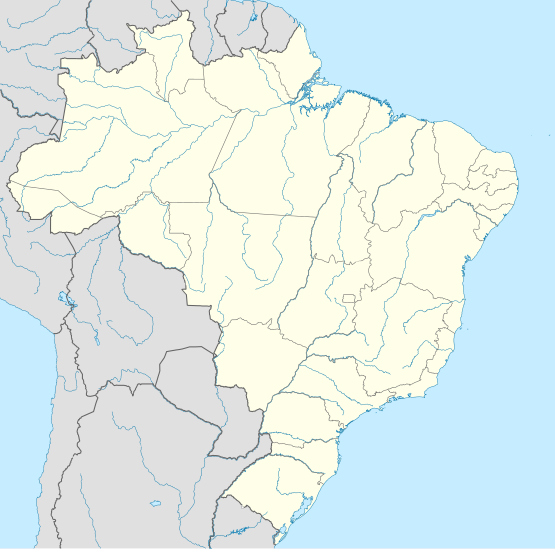2021 Campeonato Brasileiro Série C
| Season | 2021 |
|---|---|
| Dates | 30 May – 21 November 2021 |
← 2020 2022 → | |
The 2021 Campeonato Brasileiro Série C is a football competition held in Brazil, equivalent to the third division. It will begin on 30 May and will end on 21 November 2021.[1]
Twenty teams will compete in the tournament, twelve returning from the 2020 season, four promoted from the 2020 Campeonato Brasileiro Série D (Altos, Floresta, Mirassol and Novorizontino)[2] and four relegated from the 2020 Campeonato Brasileiro Série B (Botafogo-SP, Figueirense, Oeste and Paraná).[3]
Format
In the first stage, the teams will be divided into two groups of ten teams each. Each group will be played on a home-and-away round-robin basis. The top four teams of each group will advance to the second stage.
In the second stage, the teams will be divided into two groups of four teams each. Each group will be played on a home-and-away round-robin basis. The top two teams of each group will be promoted to the Série B, while the group winners will qualify for the finals.
Teams
|
|
Number of teams by state
| Number of teams |
State | Team(s) |
|---|---|---|
| 5 | Botafogo-SP, Ituano, Mirassol, Novorizontino and Oeste | |
| 2 | Ferroviário and Floresta | |
| São José and Ypiranga | ||
| Criciúma and Figueirense | ||
| 1 | Manaus | |
| Jacuipense | ||
| Tombense | ||
| Paysandu | ||
| Botafogo-PB | ||
| Paraná | ||
| Santa Cruz | ||
| Altos | ||
| Volta Redonda |
Personnel
First stage
In the first stage, each group will be played on a home-and-away round-robin basis. The teams will be ranked according to points (3 points for a win, 1 point for a draw, and 0 points for a loss). If tie on points, the following criteria will be used to determine the ranking: 1. Wins; 2. Goal difference; 3. Goals scored; 4. Head-to-head (if the tie is only between two teams); 5. Fewest red cards; 6. Fewest yellow cards; 7. Draw in the headquarters of the Brazilian Football Confederation.
The top four teams of each group will advance to the second stage.
Second stage
In the second stage, each group will be played on a home-and-away round-robin basis. The teams will be ranked according to points (3 points for a win, 1 point for a draw, and 0 points for a loss). If tie on points, the criteria to determine the ranking are the same as used in the first stage.
The top two teams of each group will be promoted to the Série B. Group winners will advance to the finals.
Finals
The finals will be played on a home-and-away two-legged basis, with the higher-seeded team hosting the second leg. If tie on aggregate, the away goals rule will not be used, extra time will not be played, and the penalty shoot-out will be used to determine the champions.
The finalists will be seeded according to their performance in the tournament. The teams will be ranked according to overall points. If tie on overall points, the following criteria will be used to determine the ranking: 1. Overall wins; 2. Overall goal difference; 3. Draw in the headquarters of the Brazilian Football Confederation.
| Team 1 | Agg. | Team 2 | 1st leg | 2nd leg |
|---|---|---|---|---|
| – | – |
Matches
| v | ||
|---|---|---|
| v | ||
|---|---|---|
References
- ^ "Estaduais, Brasileirão, Libertadores e mais: confira o calendário completo do futebol brasileiro em 2021" (in Portuguese). Torcedores. 4 January 2021.
- ^ "Altos-PI, Floresta-CE, Mirassol-SP e Novorizontino-SP sobem para a Série C do Brasileiro" (in Portuguese). CBF. 10 January 2021.
- ^ "Vitória vence, escapa do rebaixamento e confirma quedas de Figueirense, Botafogo, Oeste e Paraná" (in Portuguese). Correio do Povo. 26 January 2021.

